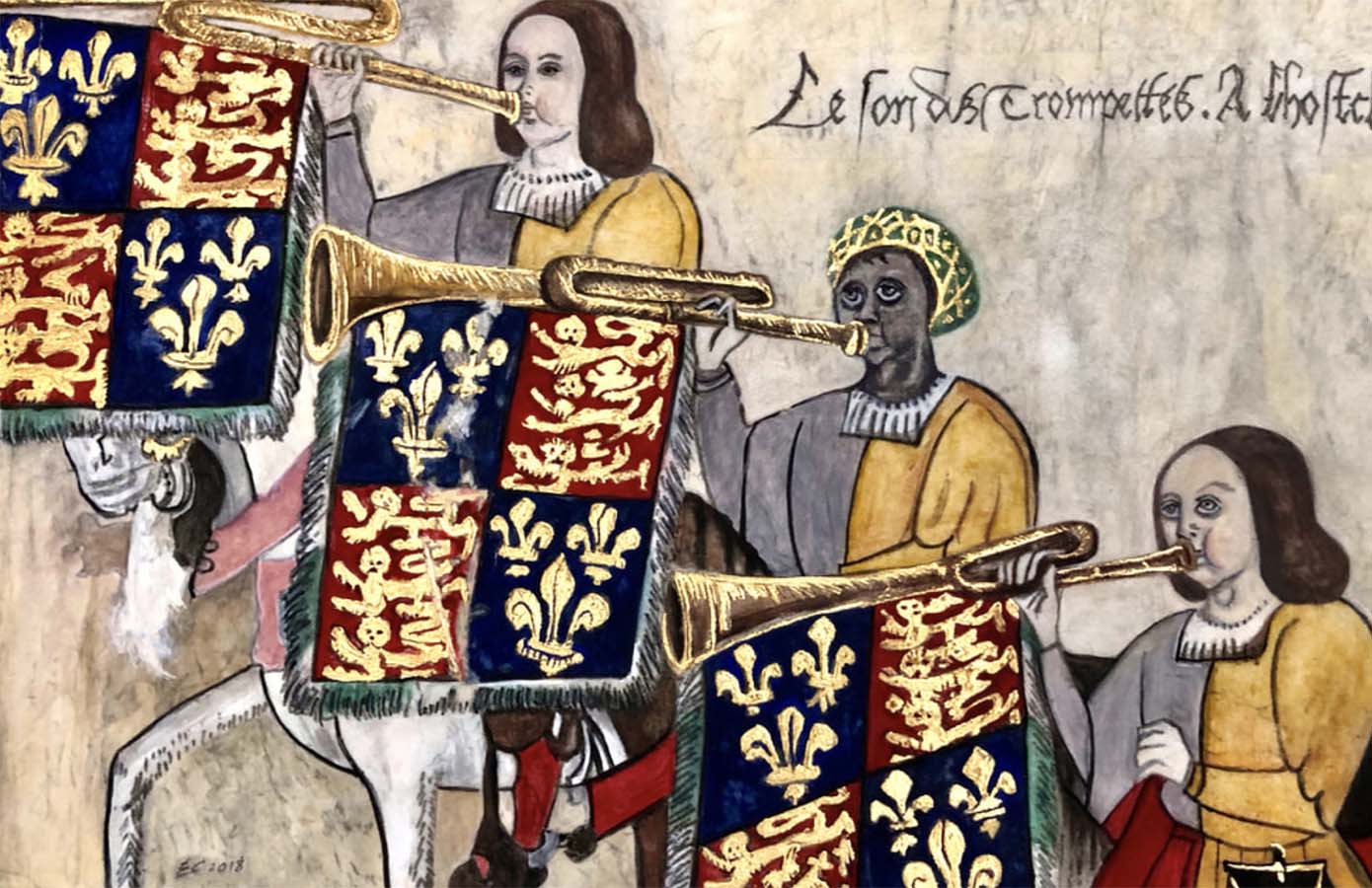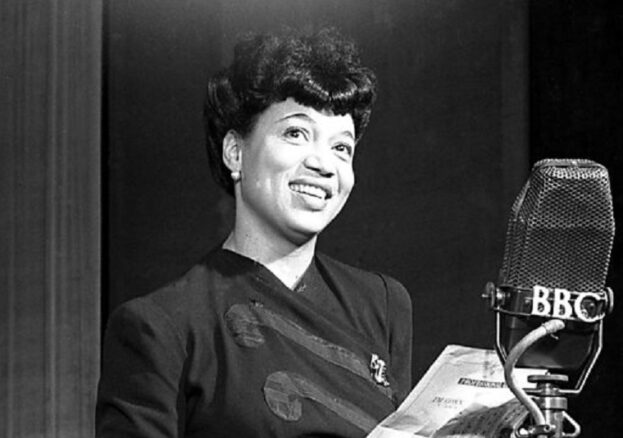
A Westminster Tournament Roll in 1511, almost certainly showing John Blanke wearing a green turban latticed with yellow. Courtesy photo.
by bbrit project
Britain’s Tudor period (between 1485 and 1603) is known for its unprecedented social, political and religious upheaval as well as its controversial monarchy. But little is known about the sizable African population who lived there during this era. They were so numerous that between 1596 to 1601, Queen Elizabeth I wrote a series of letters complaining of the “great numbers of Negars and Blackamoors” in England and authorising their deportation.
Those early Black Englishmen and women lived in a variety of places from the countryside to cities, and worked in many jobs.They included salvage diver, Jaques Francis, who was part of a team hired to salvage guns from the wreck of the Mary Rose in 1546 and Reasonsable Blackman, a silk weaver, who made an independent living as a silk weaver living in Southwark between 1579-1592, according to historian Miranda Kaufmann’s book Black Tudors. The most famous of them, John Blanke, was a musician in the courts of Henry VII and Henry VIII.
Blanke negotiated his own terms for a pay rise as a king’s musician and got it – confidence that was unheard of at the time. Although it is not certain that his name was actually Blanke, it is known that he came to England from Africa in or around 1501 and was employed as a trumpeter in the Royal Court at least in 1511. He is shown in a painting at the National Portrait Gallery in Liverpool, which depicts that year’s Westminster Tournament Roll, a lavish event celebrating the birth of King Henry VIII and Catherine of Aragon’s son, the Duke of Cornwall.
Blanke’s life has also been documented by the art and archival project named after him, created in 2016 by Michael I. Ohajuru; a fellow of the Royal Society and the Institute of Commonwealth Studies and in 2022, a Blue Plaque honouring him, was unveiled in Greenwich Naval College, the site of one of Henry VIII’s favourite palaces.
Learn more about Blanke’s life in this video.
Elisabeth Welch, a name that resonates with timeless elegance and unparalleled talent. Born in 1904, Welch was a trailblazing African-American singer and actress who left an indelible mark on the entertainment industry. Her career spanned decades, showcasing her versatility in jazz, blues, and musical theater.
Welch’s voice was a mesmerizing instrument that transcended boundaries, captivating audiences on both sides of the Atlantic. From her early performances in the Harlem Renaissance to gracing London’s West End stages, Welch’s charisma and vocal prowess earned her widespread acclaim.
Beyond her musical prowess, Welch made history as one of the first African-American women to star in a British film during the 1930s. Her legacy is not only defined by her groundbreaking achievements but also by her resilience in the face of racial and gender barriers.
Elisabeth Welch’s journey is a testament to the enduring power of talent and tenacity. As we celebrate her contributions, let us remember and honor a woman whose artistry continues to inspire generations, leaving an indomitable legacy in the annals of entertainment history.








